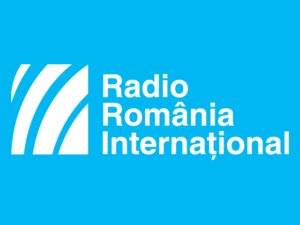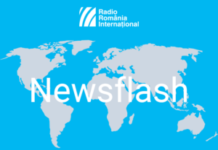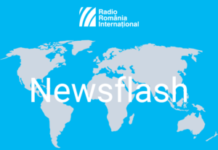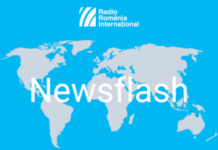Maia Sandu intends to run again for the presidential seat in the ex-Soviet, Romanian speaking Republic of Moldova and wants a referendum in autumn so that citizens may vote on the country’s European future.
Maia Sandu, the incumbent President of the ex-Soviet, Romanian-speaking Republic of Moldova, says she wants to run again for president in 2024 and has pledged to accomplish the mission of the country’s European integration.
After she had come to office in 2020, she called on Parliament to stage a referendum for the country’s EU accession. „In three years of my mandate we managed together with the citizens to keep peace in our country, strengthen the country’s independence, to have a government and kicked off negotiations for the Republic’s EU accession. Our future is in the European family and it is necessary that we tell the whole country what way we choose for the Republic of Moldova. I have called on Parliament to stage a referendum next autumn, in which the citizens’ vote will be decisive” – Sandu went on to say. Of course Chişinău will have to take more major steps in its European integration process, the Moldovan official added, giving assurances that she is ready to carry on this process. This would be Sandu’s third candidature. After she had lost the presidential seat to her pro-Russian opponent, Igor Dodon in 2016, she took revenge with a landslide victory four years later. We recall that in 2020, the leader of the pro-Western Action and Solidarity Party, a.k.a PAS, became president of the Republic of Moldova. A year later, this political force managed to get Parliament majority and step up its policy of coming closer to the EU and the USA. In 2022 the Republic of Moldova got the statute of EU accession candidate jointly with Ukraine. In 2023, the European leaders decided the republic should commence its accession negotiations in December with a new European Commission assessment scheduled for March 2024.
During the Russian-Ukrainian war, Chişinău started talking about the ‘Russian threat’ and cutting its ties with the Commonwealth of Independent States. In May, President Sandu accused Russia of having tried to overthrow the authorities in Chisinau. In the meantime, the opposition, including the Socialist Party of the former country president Dodon, believes the incumbent leadership is actually receiving orders from the ‘western curators’. The Republic of Moldova proclaimed its independence from the Soviet Union in 1991 and Romania was the first state to recognize its independence. A year later, the breakaway region of Transdniester located between the Dniester and Ukraine de facto rejected Chisinau’s authority following an armed conflict with hundreds of dead, which ended after the Russian troops had joined the separatists. Russian troops are still present in Transdniester, which is functioning almost as an independent region with a territory of 41 hundred square kilometers inhabited by half a million pro-Russians. The region has its own currency, passports and car registration plates, even if it’s not recognized by the international community.
(Mihai Pelin, Radio Romania International)











